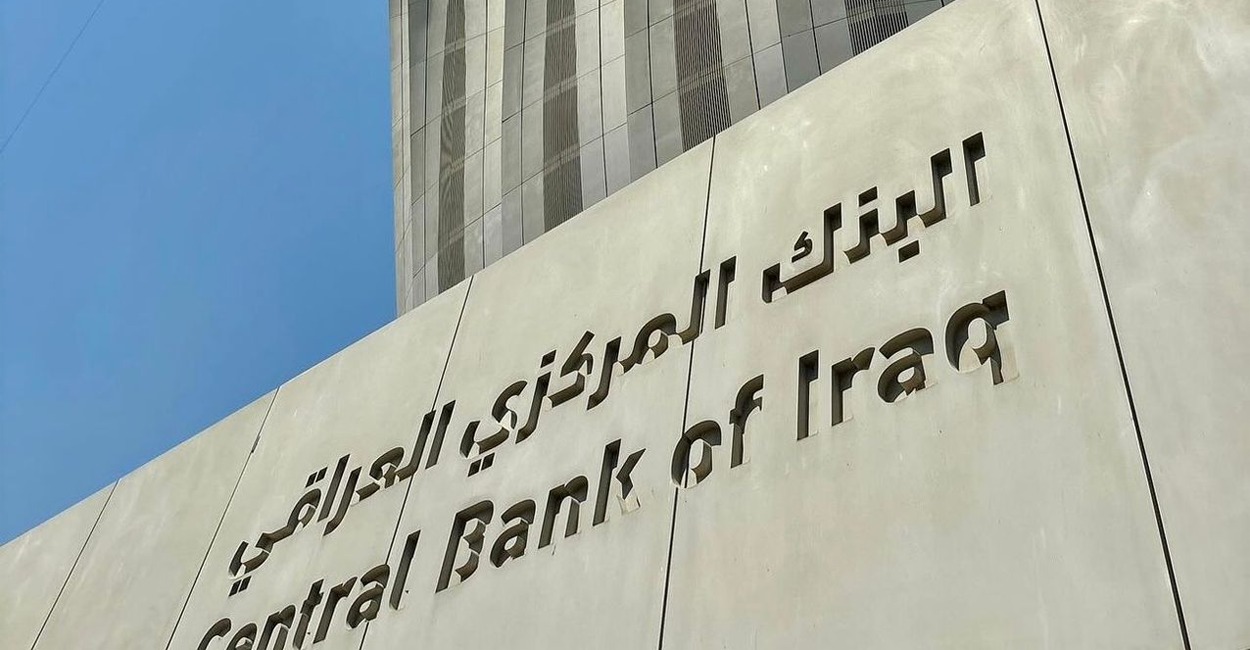KTFA
FRANK26: "HYBRID MONETARY POLICY PART 1"....F26
The Central Bank of Iraq decides to reduce interest to 5.5% in order to support economic growth
10/25/2024
The Central Bank of Iraq decided to reduce the interest rate from 7.5% to 5.5%, after the inflation rate decreased in Iraq.
According to the Ministry of Planning, the inflation rate has fallen from 8% to less than 3%.
Deputy Governor of the Central Bank, Ammar Hamad, said, "Based on the monetary policy orientations to enhance access to targeted inflation rates in a manner that does not conflict with the expected economic growth rates, and is consistent with the policy of developing deposits and increasing credit rates aimed at targeting projects, the Board of Directors of the Central Bank decided to reduce the monetary policy rate to 5.5% instead of 7.5%."
He added that the securities, namely Islamic deposit certificates and traditional transfers, were reactivated according to an annual plan with two terms, 14 days with a return of 4% and 182 days with a return of 5.5%.
He stressed that the maximum investment limit does not exceed 50% of the total private sector deposits at the bank.
The Central Bank stressed that the bank's investment ceiling in a single auction does not exceed 500 billion dinars.
########
"PART 2 OF THE HYBRID MONETARY POLICY".........F26 (A 2ND SET OF BOOKS)
"Hybrid Monetary Policy".. Al-Sudani's Advisor Reveals the Central Bank's New Step
10/26/2024
Saleh told {Euphrates News} that: "It is clear that the monetary policy of the Central Bank of Iraq has become a policy that meets the requirements of growth in real economic activity, through activating its operational objectives aimed at reducing the cost of credit and financing within the joints of the economic system in general and the banking system in particular.
" He explained, "The Central Bank began, through its decision issued in accordance with its circular on October 24, to reduce the monetary policy interest rate (which is the rate at which the Central Bank of Iraq deals with the banking system) by about 200 percentage points, by lowering the interest at which the Central Bank deals with banks from 7.5% to 5.5%, which means that the Central Bank of Iraq has become following an expansionary policy in targeting the money supply in a manner that is consistent with activating the real sector in the national economy and confronting unemployment indicators in the overall economy."
According to the statement of the Prime Minister's economic advisor, "Despite the above, the bank in its new policy did not neglect the importance of continuing to control local liquidity levels and carrying out high sterilization operations, by offering debt instruments called Islamic certificates of deposit with a return that increases with the length of the amortization period of those securities purchased by the banking system, which are considered sovereign debts that can be mortgaged or discounted in the secondary market and are excellent debts."
He continued, "The monetary policy of the Central Bank has given a signal to the financial and banking system that its easy or flexible policy adopted by the bank in moving the liquidity of the economy is under continuous control in order to play the role of the monetary authority in combating inflationary activities and imposing economic stability as its first central goal."
Saleh concluded by saying, "Between expanding the movement of economic liquidity as an expansionary policy and imposing control over liquidity levels by offering debt instruments in return at the same time in parallel, we can call the current monetary policy of the Central Bank of Iraq a {hybrid flexible monetary policy}." (A 2ND SET OF BOOKS -F26)
The bank decided to reduce the interest rate from 7.5% to 5.5%, in addition to reactivating the securities (Islamic certificate of deposit and money transfers) according to an annual plan and with two terms: with a return of 4% for a period of 14 days and a return of 5.5% for a period of 182 days.
Raghad


